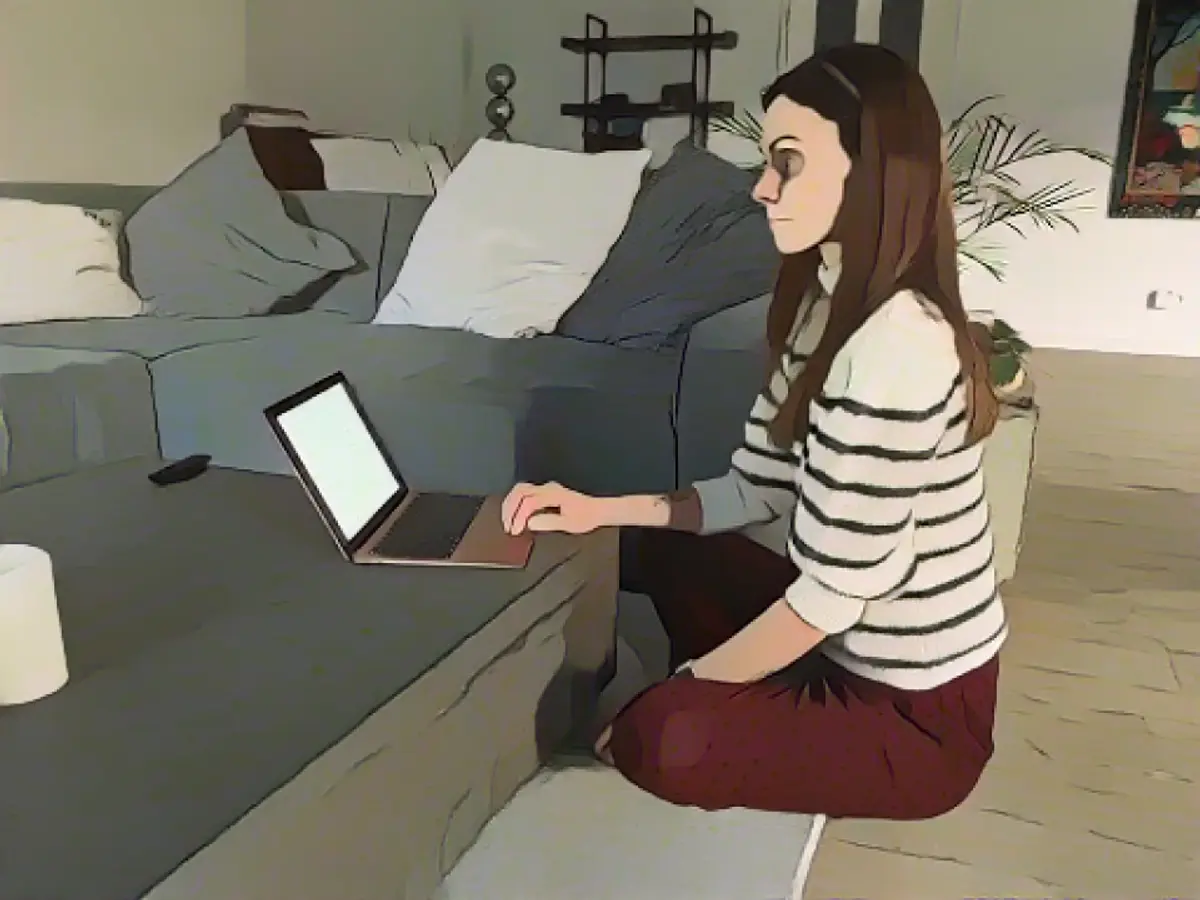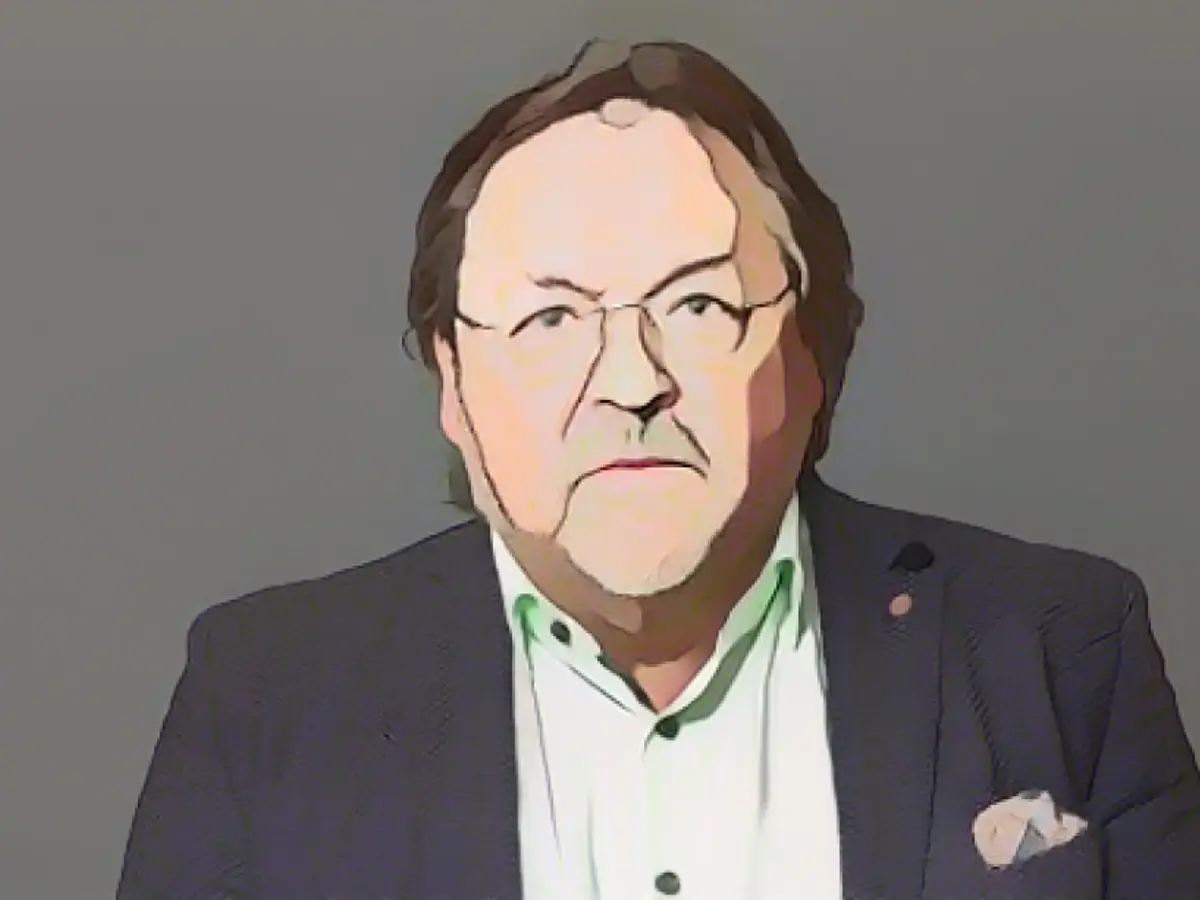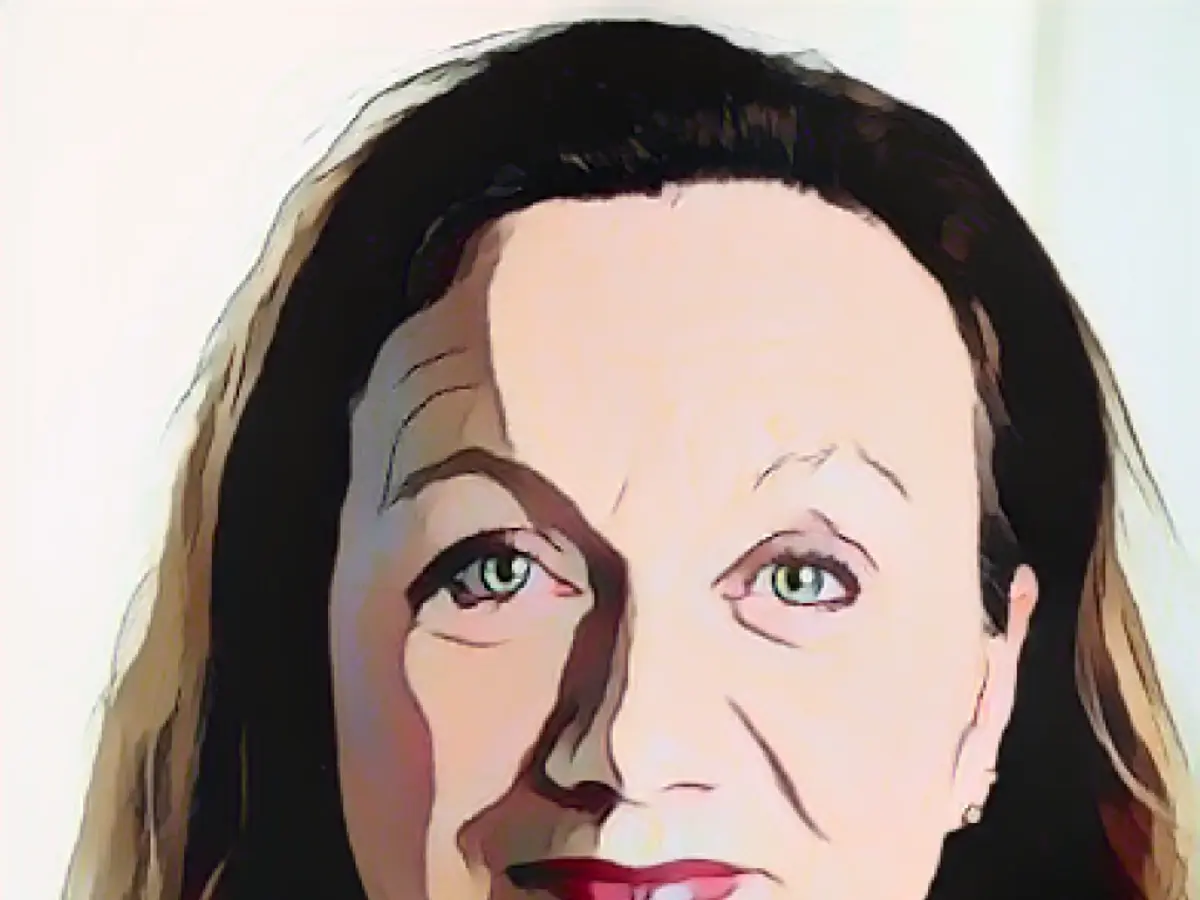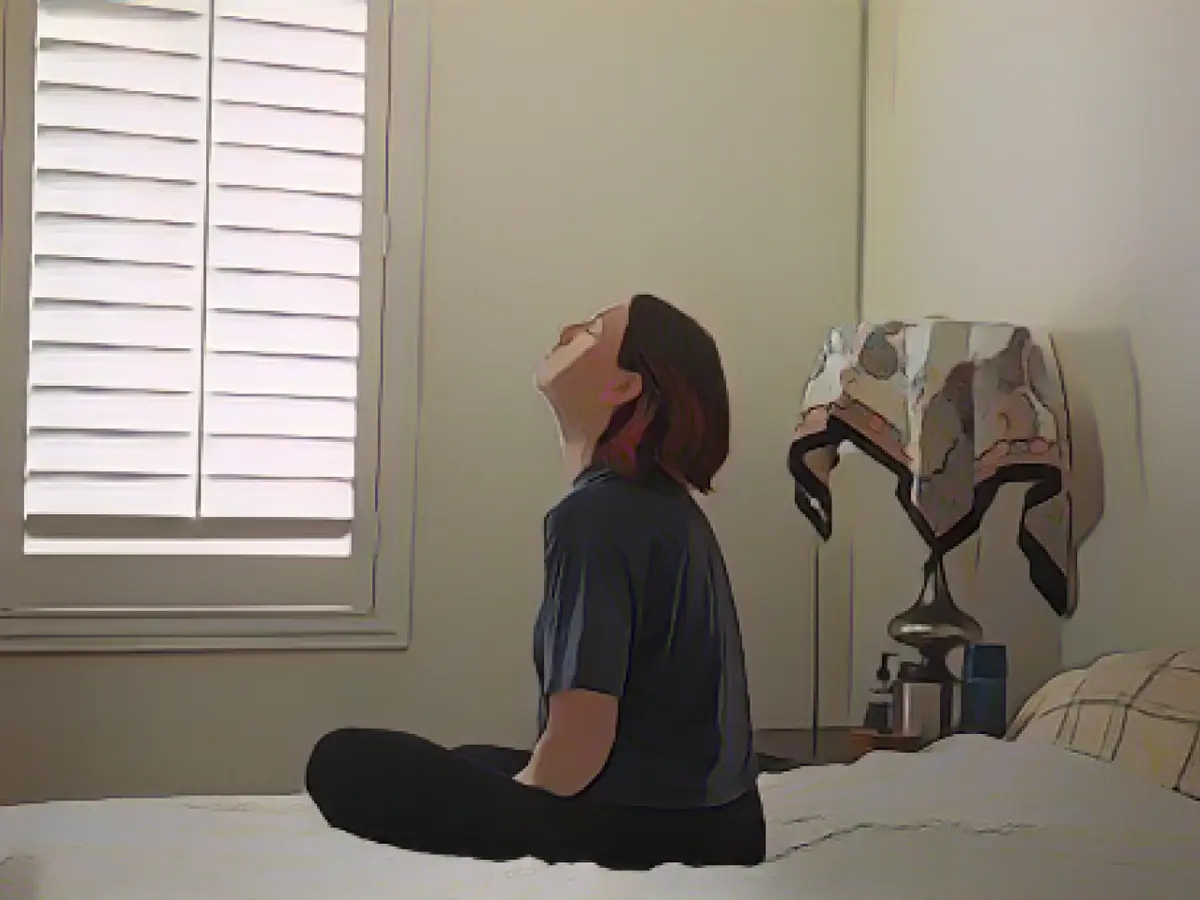Psychology - Ancestral healing: Am I the sum of my ancestors? A self-experiment
"I am delighted that you are here today to take up the legacy of your ancestors and at the same time give something back to them." The voice that speaks to me sounds gentle and comes from the speakers of my computer. It belongs to Bettina Flasch, who calls herself a shaman and offers "ancestral healings". Entitled 'Your drama, your key - unlock your inner essence', the online course guides us for eleven days to come to terms with our history, beliefs and patterns. I signed up to understand what such an 'ancestor meeting' looks like, where the souls of deceased and non-deceased family members are brought together. I found out that such a thing even exists from an acquaintance whose partner enthusiastically took part in such a course after the death of his mother.

The market is surprisingly diverse
The phenomenon is not new, says Matthias Pöhlmann, theologian and commissioner for sect and worldview issues at the Evangelical Lutheran Church in Bavaria: "Ancestral healings have been part of our Western culture since the 1960s." The question of where we come from, who our ancestors were and what influence they have on us has always preoccupied indigenous peoples, says Pöhlmann, citing the example of Huna shamanism in Hawaii. "Ancestral healing satisfies a great longing of our time. Who am I, what are my influences - it's all about personal identity," says Pöhlmann. According to the theologian, this would certainly fit into our Western world. "Ancestral healing is an offer that fits in with the coaching market and the focus on the inner self."
The market is surprisingly diverse: there are meetings in big cities and in villages where people come together and meditate in a circle; there are group events and one-to-one support, online and on site. In the search for my self-experiment, I found numerous providers - coaches and "shamans" whose exact educational background is often unknown - in all possible price ranges. From around 250 euros for an online seminar to almost 2,000 euros for three months of coaching with individual sessions.
I play down problems humorously at first
For me, it's questions like "What were your parents like in your childhood?", "How did you perceive your parents?" or "What do you believe in?" that bring me closer to my ancestors. I can answer most of them surprisingly well. I have almost exclusively fond memories of my childhood. Summer days in the garden; my mother playing with my sister and me, singing to us; my father showing us children a farm with piglets at the weekend. I immediately feel the comforting feeling that connects me to my parents and my childhood rise up in me as I write something in my workbook, a kind of diary that is part of the seminar. Some questions surprise me. What effect did my parents' relationship have on me as a child? "Like two playmates," I think with a smile. Two people who have deep conversations, but who above all inspire each other and keep things light-hearted. Maybe that's why humor is so important to me with other people and why I like to play down problems in my life with humor.

How can dealing with your ancestors help you to get a grip on your own problems? The background is more scientific than you might think: each of us not only has the genes of previous generations, but also the attitudes and personality traits that they passed on, some of which are passed on with a genetic disposition - i.e. a hereditary predisposition. In part, they are the result of acquired behaviour, our socialization and experiences. "Epigenetics" is the name of the science that is increasingly being recognized by psychiatrists and psychologists: "We can now assume that certain patterns and behaviours are hereditary," says Christa-Roth-Sackenheim, a specialist in psychiatry and psychotherapy, neurologist and chairwoman of the Professional Association of German Psychiatrists. "Epigenetics currently provides proof that existing knowledge is passed down through generations."
Similarity with systemic family therapy
This is also the reason why a family history is an integral part of psychotherapy. According to the psychiatrist, the reappraisal of the family past, as it takes place during an ancestor healing session, is part of systemic family therapy. In this respect, Roth-Sackenheim suspects that ancestor meetings can be very helpful for some people.
Sophia, who took part in Bettina Flasch's seminar before me, confirms this. "You deal intensively with yourself," she says. She signed up to be able to deal better with the challenging situations in everyday life with her children. Dealing with herself - Sophia refers to this as "shadow work" - helped her to become happier. She is now also less judgmental and more understanding of others. "You become aware of why you and the other person act the way you do," says Sophia.
It's similar for me. The questions about my parents and my background, which I answer in the first part of the seminar, are actually fun and make me feel like I'm learning something about myself. After a few days, however, I reach my limits. On the agenda is a meditation in which I am asked via an audio file to close my eyes and concentrate on my breathing.
Who were my ancestors, what shaped them?
"Allow yourself to see inner images," Bettina Flasch's gentle voice says and I mentally walk down a long, light forest path. My mother is standing behind me, a joke on her lips as always, and next to her is my father, who is waiting for me a little rushed. "Behind them are your mother's mother and her grandmother, and your father's father," says the voice I've followed so far. Now it's getting difficult. My 91-year-old grandmother is probably lying in bed at home right now. My grandfather, who died a few years ago, has somehow always been with me since then anyway. All my other ancestors feel so far away that I can't even imagine them. Who were they, what shaped them? I don't know.
For some participants, this question doesn't seem to be so important. Mira, for example, who I found on the internet, tells me that she is certain that her female ancestors had bad experiences with men. How does she know that? She simply knows.
Between self-analysis and spirituality
Many participants, explains theologian Pöhlmann, are looking for something higher through offers such as ancestral healing. "Religions are playing an increasingly minor role in our society today," he says. "As a result of individualization, people are choosing the spirituality that suits them best from the range of faiths on offer."
However, it is precisely this point that the representative for worldview issues of the Protestant regional church in Bavaria takes a critical view of. Unlike in the West, ancestor healing in traditional shamanism is embedded in a belief system. With us, it's a kind of self-service store - you pick out whatever suits you. The theologian finds my critical distance to the ideas during meditation commendable: "The deceased also have dignity, they are not a disposable mass for personal self-empowerment."
Pöhlmann takes a critical view of the whole thing: "Psychotherapists have intensive training and science behind them. This is not the case with self-proclaimed shamans," says Pöhlmann. There is therefore a risk of exaggerated promises that are not kept.
"The procedure is not recognized under social law," psychiatrist Christa Roth-Sackenheim also points out, "so anyone can offer it." Such an offer cannot therefore treat an existing mental disorder. "For healthy people, however, there is nothing to prevent them from considering such a counseling service, which is carried out in a serious manner," says Roth-Sackenheim.

What do you have to do to be loved by your parents?The seminar, through which I am supposed to get to know my ancestors, lasts several weeks. On average, I spend three quarters of an hour a day doing the exercises, so that afterwards I have the feeling that I have not only come closer to my ancestors, but above all closer to myself. The questions that are supposed to prepare me for the meditation are sometimes frighteningly honest and new: Did I feel more attracted to my mother or father as a child? What would I have liked more of? One of the questions particularly resonates: What did I have to do to be loved by my parents? A question that would certainly contribute significantly to self-awareness for many. The truth is, however, that I have to smile at this question because I was very lucky to be loved unconditionally by my parents. There was no anger for poor school grades, but rather support; I was praised for my achievements without being put under too much pressure. And so I didn't have to negotiate too much with my parents.
They could talk a bit more about problems, but I'm not surprised that my parents' generation isn't particularly good at it when I think about the generation before them - that of my grandparents. Both of my parents' families had to flee and somehow come to terms with it; repression was probably the only option.
My generation, on the other hand, can theoretically talk openly about almost everything today, but I still find it difficult. One thing I learned from the seminar is that I also tend to shy away from conflict and like to smile away problems. I should definitely learn more about that. As far as meditation is concerned, it's still unclear to me how my parents' souls are supposed to find their way there when they are (fortunately!) stuck in their bodies. Never mind. Such an ancestral healing can be helpful in dealing with one's own ego, beliefs and the question of where one wants to go in life. I discuss everything else with my parents in real life.
Read also:
- Unanimous decision: faster wolf culls possible
- No Christmas peace with the British royals
- No Christmas peace with the British royals
- No Christmas peace with the royals
In the context of exploring ancestral healing techniques, I was intrigued to learn about the role of family constellations in this process. During the online course, we were encouraged to imagine our ancestors as part of a meditation exercise, including my parents and grandparents. This practice resonated with some participants who believed that their female ancestors had suffered from negative experiences with men, despite having no concrete evidence to support this belief.
Reflecting on my own experience, I found that engaging in self-experiments like this can help improve self-knowledge and potentially shed light on patterns that may be influenced by our ancestors. The concept of ancestral healing, as offered by shamans like Bettina Flasch, can be seen as an alternative to traditional religious practices, as many individuals are turning to spirituality that resonates with their personal beliefs in today's more individualized society.
Source: www.stern.de







